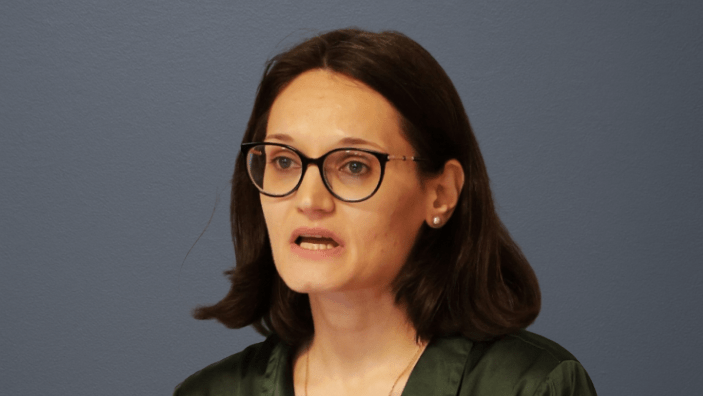About
Name: Dr Romina Istratii
Nationality: Romanian/Moldovan
Programme: MSt in Entrepreneurship 2024
Education: Bachelor of Arts (Politics, Economics and Chinese) – Bates College

Romina is a recipient of the MSt in Entrepreneurship Scholarship for women.
What led you to take the Cambridge Judge Business School’s MSt in Entrepreneurship?
The decision reflects an almost Daedalian professional trajectory, having moved across several academic disciplines in my lifetime in search for culturally appropriate ways to address domestic violence in international contexts. As a scholar and practitioner, I have been motivated by the need to redress knowledge and structural inequalities across nations, improve diversity in how we understand and respond to societal challenges and promote more inclusive and equitable collaboration with researchers and communities in non-western societies. I decided to pursue the MSt in Entrepreneurship programme, especially after striving in the past 4 years as a Principal Investigator at the University to commercialise my impact-driven research on domestic violence and to grow sustainably another venture, Decolonial Subversions, I had co-founded as a PhD student, promoting decolonisation in scientific publishing. Cambridge Judge felt like the right space to build bridges between academia, research innovation and social entrepreneurship, offering an ideal ecosystem for developing financially robust ventures with impact in mind.
How do you feel about being awarded your scholarship?
Having financed most of my academic life with generous scholarships, I value deeply any scheme that seeks to support students from financially disadvantaged backgrounds. As a UK-based Eastern European researcher, from a Moldovan migrant family and as it happens with many migrant families, I face financial obligations that stretch across borders. Beyond that, my work is impact-oriented and although it seeks to leverage business and entrepreneurship to maximise impact, it is not-for-profit. The financial support is especially vital at the current stage of my life, having resigned from the University to build my startup, The Institute for Domestic Violence, Religion & Migration (IDVRM). It is dedicated to developing innovative, scalable and decolonial responses to domestic violence in religious, ethnic minority and migrant communities. The scholarship eases financial pressure, but more importantly, it validates the societal importance of the work I do.
Where do you see your programme journey taking you in your future career?
Already in the first year of the programme, I have made the decision to transition from academia to social entrepreneurship. I have moved from being the Principal Investigator of UK Research and Innovation (UKRI)-funded Project dldl/ድልድል (Project Bridge), a multi-partner initiative addressing domestic violence in Ethiopia and the UK through 2-way knowledge exchange and innovation, to directing a research institute that my team and I are currently taking steps to incorporate in the UK.
Being at Cambridge, surrounded by equally passionate visionaries and developing practical knowledge and skills, has given me the confidence to dream wider and bigger. I now have a vision to make tackling domestic violence everyone’s business, not only experimenting with new models of financing social entrepreneurship but also expanding our work to more underrepresented communities and serving as a true bridge of knowledge exchange, collaboration and innovation between East Africa, Western Europe and Eastern Europe – perhaps at a time that the world needs this the most.
What does Cambridge mean to you?
Cambridge for me is both a homecoming and a breakthrough. In my early 20s and during my college education in the US, I came across the knowledge and structural inequalities that I am addressing today and decided to abandon academia to become an independent researcher in sub-Saharan Africa. I returned to academia a few years later to channel my research experience in a scholarship and practice sector that I felt still failed to capture diverse and nuanced lived experiences. After spending a few more years in the University, lecturing and leading impact-driven research, I decided that the time had come for me to materialise my own vision with the autonomy that such a vision requires. Coming to Cambridge gave me the practical knowledge to do so, but most importantly, it brought me a community of like-minded individuals that I had missed as a result of my constant mobility in the world. It is homecoming because I feel that both I and my vision have found a base to grow from. It is a breakthrough because it has served as a confirmation that my vision must remain borderless. My perennial peregrinations in the world, finally, make sense.

